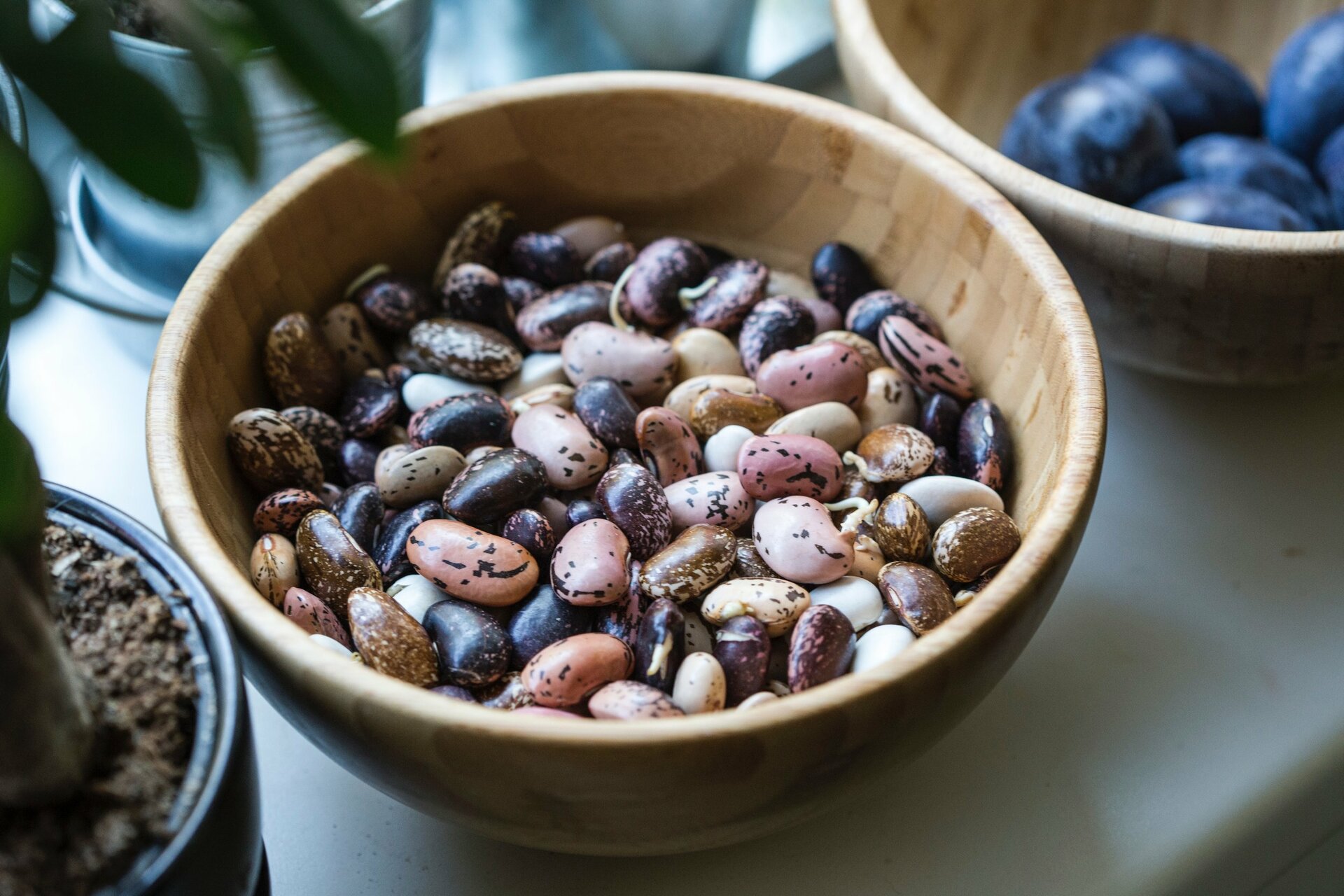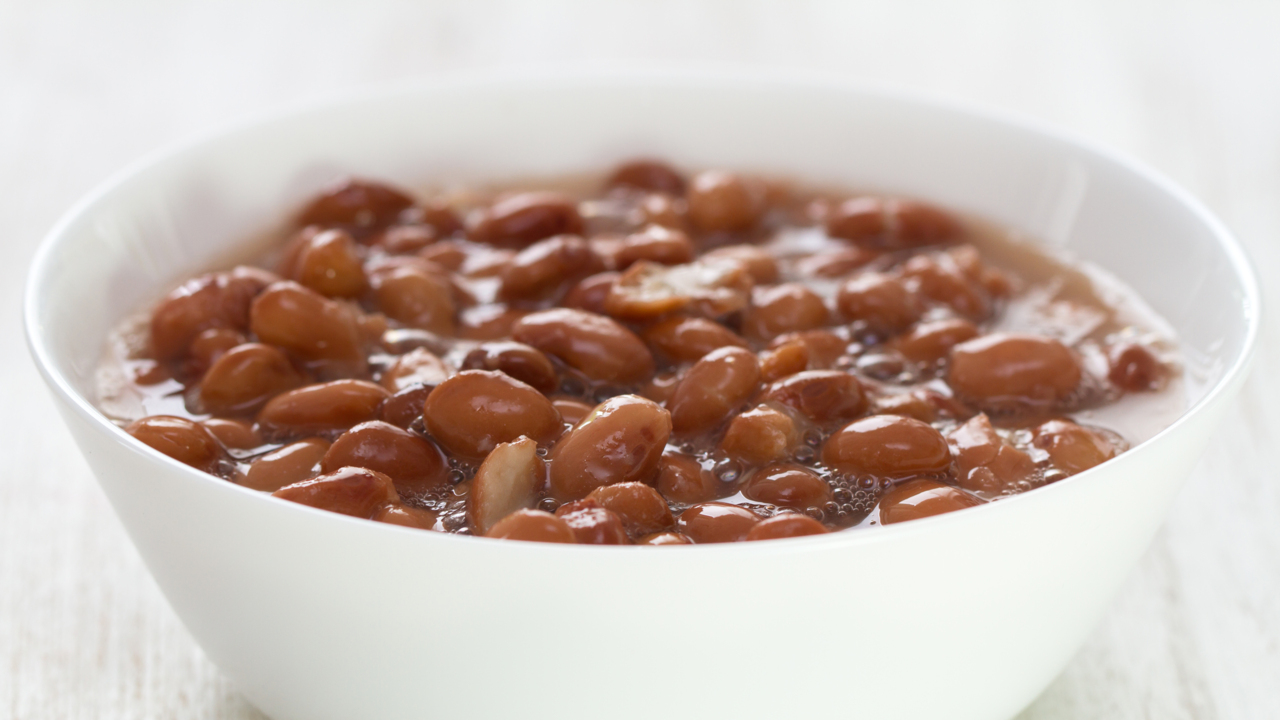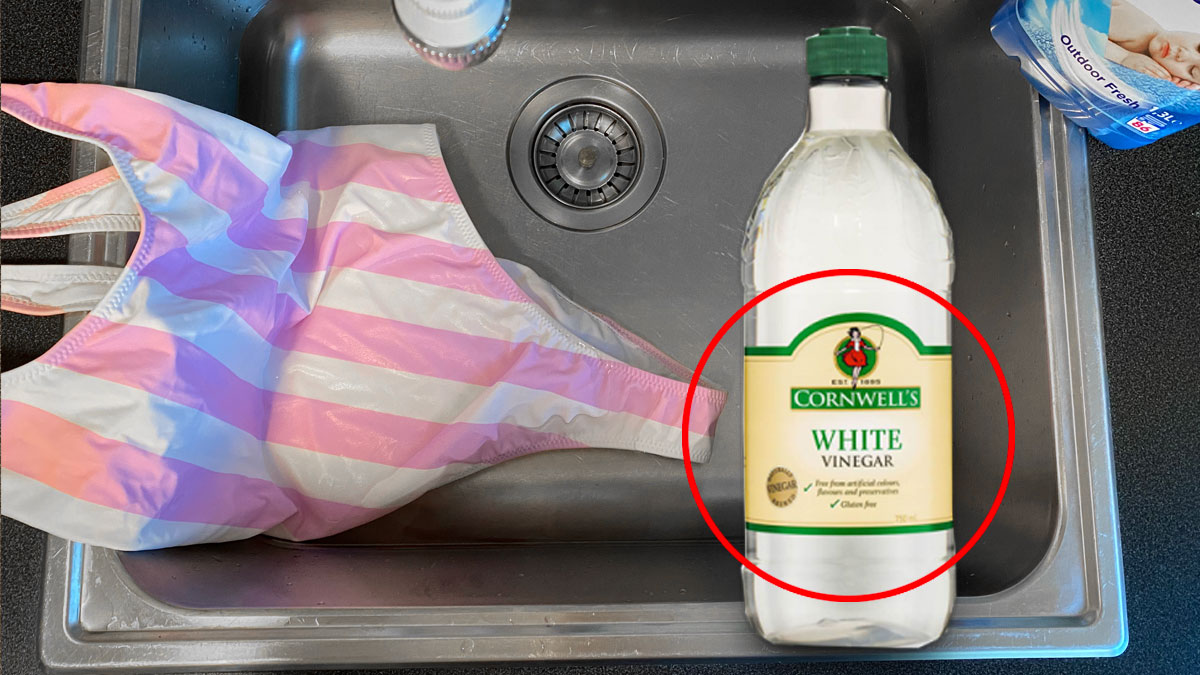

FAQs
How To Not Fart From Beans
Modified: August 5, 2023
Discover effective ways to avoid farting caused by eating beans. Get answers to your general questions about digestive health and find relief now!
(Many of the links in this article redirect to a specific reviewed product. Your purchase of these products through affiliate links helps to generate commission for Under-tec.com, at no extra cost. Learn more)
Table of Contents
- Introduction
- Understanding the Science of Bean Digestion
- Tips for Reducing Flatulence from Beans
- Choosing the Right Beans
- Soaking and Preparing Beans
- Cooking Methods that Minimize Gas
- Adding Digestive Herbs and Spices
- Pairing Beans with Other Foods
- Eating Beans in Moderation
- Lifestyle Changes for Reducing Flatulence
- Conclusion
Introduction
Beans are a nutritious and versatile food that can be a delicious addition to any meal. Packed with protein, fiber, vitamins, and minerals, beans offer numerous health benefits. However, for some individuals, enjoying beans comes with an unwanted side effect: flatulence.
Flatulence, commonly known as passing gas or farting, is a natural bodily function. It occurs when the digestive system breaks down complex carbohydrates in beans, releasing gas as a byproduct. While passing gas is normal, excessive flatulence can be embarrassing and uncomfortable.
In this article, we will explore the science behind bean digestion and provide practical tips to help reduce flatulence caused by beans. Whether you’re a bean lover looking to minimize gas or someone hesitant to include beans in your diet due to this concern, these strategies will come in handy.
We’ll cover everything from choosing the right beans and proper preparation techniques to cooking methods that minimize gas production. Additionally, we will discuss how adding certain herbs and spices can aid in digestion and explore ways to pair beans with other foods to alleviate flatulence. Lastly, we’ll touch on the importance of moderation and lifestyle changes that can promote a healthier digestive system.
So, if you’re ready to learn how to enjoy the nutritional benefits of beans without the embarrassing aftermath, let’s dive into the world of bean digestion and discover effective ways to reduce flatulence!
Understanding the Science of Bean Digestion
Before we delve into ways to reduce flatulence caused by beans, it’s essential to understand the science behind bean digestion. Beans contain a type of carbohydrate called oligosaccharides, specifically raffinose and stachyose, that the human body cannot fully break down.
These oligosaccharides travel undigested to the large intestine, where they serve as food for the bacteria residing in our gut. As the bacteria ferment these indigestible carbohydrates, they produce gases such as hydrogen, methane, and carbon dioxide.
These gases, along with air swallowed during eating and drinking, accumulate in the digestive system, leading to bloating and the production of flatulence. The amount of gas produced varies from person to person, depending on factors such as their gut microbiota and the enzymes present in their digestive system.
It’s important to note that while flatulence can be associated with discomfort and embarrassment, it is a normal bodily function and not a cause for concern unless it becomes excessive or is accompanied by other digestive symptoms.
Now that we understand the basis of bean digestion, let’s explore practical tips and strategies to minimize the gas production and reduce flatulence caused by beans in the following sections.
Tips for Reducing Flatulence from Beans
If you’re concerned about experiencing excessive flatulence after eating beans, there are several strategies you can employ to reduce gas production and alleviate discomfort. By following these tips, you can continue to enjoy the nutritional benefits of beans without the unwanted aftermath.
1. Choose the right beans: Some types of beans, such as black beans and lentils, are known to produce less gas compared to others. Experiment with different varieties to find the ones that are easier on your digestive system.
2. Soak and prepare beans: Soaking beans before cooking can help break down some of the indigestible carbohydrates, making them easier to digest. Drain and rinse the soaked beans thoroughly before cooking to remove any remaining gas-producing compounds.
3. Opt for gradual increases: If you’re not accustomed to eating beans regularly, it’s best to introduce them gradually into your diet. Start with small portions and gradually increase the amount over time to allow your digestive system to adjust.
4. Cook beans thoroughly: Properly cooking beans can help break down more of the gas-producing compounds. Consider using a pressure cooker or cooking beans for an extended period to ensure they are fully cooked and easier to digest.
5. Use digestive aids: Adding certain herbs and spices known for their digestive properties, such as cumin, ginger, and fennel, to your bean dishes can help promote better digestion. These ingredients can help reduce gas production and improve overall digestive health.
6. Pair beans with other foods: Combining beans with other foods can help prevent excessive gas production. Pairing beans with grains, vegetables, or sources of lean protein can dilute the oligosaccharides and make them easier to digest.
7. Incorporate digestive enzymes: Taking over-the-counter digestive enzyme supplements can assist in breaking down the carbohydrates in beans, reducing the likelihood of excessive gas production.
8. Chew thoroughly and eat slowly: Taking the time to chew your food thoroughly and eat slowly can aid in the digestion process. By breaking down the food more effectively in your mouth, you decrease the workload on your digestive system.
By following these tips, you can significantly reduce the flatulence associated with consuming beans and continue to enjoy their nutritional benefits without discomfort.
Choosing the Right Beans
When it comes to reducing flatulence from beans, choosing the right type of beans can make a difference. Some varieties are known to produce less gas compared to others, so it’s worthwhile to consider your options. Here are some tips for selecting beans that are easier on your digestive system:
- Black beans: Black beans are generally well-tolerated and less likely to cause excessive gas. They are a versatile option that can be used in a variety of dishes, such as soups, salads, and side dishes.
- Lentils: Lentils are another bean variety that tends to produce less gas compared to others. They are packed with protein and fiber, making them a nutritious addition to meals.
- Mung beans: Mung beans are known for being easier to digest. They are commonly used in Asian cuisine and can be cooked as a standalone dish or added to soups and stir-fries.
- Adzuki beans: Adzuki beans are a small red bean that’s packed with nutrients. They are easier to digest compared to larger bean varieties and can be used in both sweet and savory dishes.
- Chickpeas: Chickpeas, also known as garbanzo beans, are a popular legume that’s rich in protein and fiber. While they can cause gas for some individuals, soaking and cooking them thoroughly can help make them more digestible.
Keep in mind that everyone’s digestive system is unique, and what works for one person may not work for another. It’s essential to pay attention to your body’s response to different types of beans and find the ones that suit you best. Consider experimenting with different varieties and observing how your body reacts to them.
Additionally, it’s worth noting that canned beans may be more convenient, but they can cause more gas compared to dried beans. This is because they have undergone less soaking and cooking, which means that the oligosaccharides are not broken down as effectively.
By selecting the right beans for your body and opting for dried beans over canned ones, you can reduce the likelihood of experiencing excessive flatulence and make bean consumption a more enjoyable experience.
Soaking and Preparing Beans
Properly soaking and preparing beans is an essential step in reducing flatulence and improving the digestibility of beans. Soaking helps soften the beans and breaks down some of the indigestible carbohydrates, making them easier to digest. Here are some tips for soaking and preparing beans:
- Sort and rinse: Before soaking, sort through the beans to remove any debris or damaged beans. Rinse them thoroughly under cold water to remove any dirt or dust.
- Choose the soaking method: There are two common methods for soaking beans: the overnight soak and the quick soak. For the overnight soak, place the beans in a large bowl and cover them with water. Allow them to soak for at least eight hours or overnight. For the quick soak method, bring the beans to a boil in a pot of water. Once boiling, remove from heat, cover, and let them sit for an hour.
- Discard the soaking water: After soaking, drain and rinse the beans well. It’s crucial to discard the soaking water as it contains some of the gas-producing compounds that were released during the soaking process.
- Cooking liquid: When cooking the beans, use fresh water or broth instead of the soaking water. This helps remove any remaining indigestible carbohydrates and reduces the likelihood of excessive gas production.
- Cooking time: Cook the beans until they are fully softened, which typically takes around one to two hours, depending on the type and freshness of the beans. Undercooked beans can be harder to digest and may lead to gas and bloating.
It’s worth mentioning that some individuals find that adding a small piece of kombu seaweed or a bay leaf to the cooking water can help further break down the oligosaccharides and make the beans more digestible.
Remember that proper soaking and preparation can significantly reduce the gas-producing compounds in beans and improve their digestibility. Experiment with different soaking times and methods to find what works best for you.
Cooking Methods that Minimize Gas
While beans are incredibly nutritious, they can sometimes cause discomfort due to excessive gas production. However, by employing certain cooking methods, you can minimize gas and make beans easier to digest. Here are some cooking methods to consider:
- Pressure cooking: Pressure cooking is a great way to cook beans efficiently while reducing their gas-producing properties. The high pressure and temperature help break down the oligosaccharides, resulting in beans that are easier to digest. If you have a pressure cooker, follow the manufacturer’s instructions for cooking times and ratios.
- Extended cooking: Cooking beans for a more extended period can help break down the indigestible carbohydrates further. Consider simmering your beans for at least 1.5 to 2 hours until they are soft and tender. This extended cooking time can make a significant difference in reducing gas production.
- Drain and rinse: After cooking, drain the beans and rinse them well under cold water. This step helps remove any gas-causing compounds that may have been released during the cooking process.
- Slow cooking: Slow cooking beans over low heat can also improve digestibility. This gentle cooking method allows the beans to cook slowly, breaking down the oligosaccharides and making them more tolerable to the digestive system. Use a crockpot or a slow cooker and cook on low heat for several hours until the beans are soft.
- Mixing with other ingredients: Another way to minimize gas production is by combining beans with other ingredients. Mixing beans with vegetables, grains, or sources of lean protein can help dilute the oligosaccharides and make the overall dish easier to digest.
Experiment with different cooking methods to find the one that works best for you. It’s important to note that while these methods can help reduce gas production, individual tolerance may still vary. Listening to your body and observing how it responds to different cooking techniques can guide you in finding the optimal way to cook beans for your digestive comfort.
Adding Digestive Herbs and Spices
Incorporating certain herbs and spices into your bean dishes can not only enhance the flavor but also aid in digestion. These digestive aids can help reduce gas production and promote better overall digestive health. Here are some herbs and spices known for their digestive properties:
- Cumin: Cumin is widely used in various cuisines and is known for its ability to improve digestion. It can help alleviate gas and bloating by stimulating the release of enzymes that aid in digestion.
- Ginger: Ginger has long been used as a natural remedy for digestive issues. It can help reduce gas and bloating, soothe the digestive tract, and stimulate the production of digestive enzymes.
- Fennel: Fennel seeds are commonly used as a digestive aid. They have carminative properties, meaning they can help relieve gas and promote healthy digestion. You can chew on fennel seeds after a meal or add ground fennel to your bean dishes.
- Turmeric: Turmeric is known for its anti-inflammatory properties. It can help soothe the digestive system and alleviate digestive discomfort. Consider adding a pinch of turmeric to your bean dishes for added flavor and digestive benefits.
- Peppermint: Peppermint has a soothing effect on the digestive system and can help reduce bloating and gas. You can consume peppermint tea or add fresh or dried mint leaves to your bean recipes.
When using these herbs and spices, it’s best to add them during the cooking process to allow their flavors and digestive benefits to infuse into the beans. However, if you prefer a milder taste, you can sprinkle them on your dish after it is cooked.
Remember to start with small amounts and adjust according to your taste preferences. While these herbs and spices can be beneficial for digestion, everyone’s tolerance may vary. Pay attention to how your body responds and adjust the amount of herbs and spices used accordingly.
By incorporating these digestive aids into your bean dishes, you can not only enhance the flavor but also promote better digestion and reduce the likelihood of excessive gas production.
Pairing Beans with Other Foods
Pairing beans with other foods can not only enhance the taste but also help minimize the gas-producing effects of beans. By combining beans with complementary ingredients, you can create balanced and digestible meals. Here are some tips for pairing beans with other foods:
- Grains: Pairing beans with grains, such as rice, quinoa, or bulgur, can help dilute the oligosaccharides present in beans. This combination provides a complete protein and promotes better digestion.
- Vegetables: Adding vegetables to your bean dishes can help promote better digestion and reduce gas. Vegetables like carrots, bell peppers, zucchini, and leafy greens can provide an additional nutritional boost while complementing the flavors of the beans.
- Lean Proteins: Combining beans with lean proteins like chicken, turkey, or tofu can provide a well-balanced meal. This combination adds more variety to your dish and keeps it satisfying without overloading your digestive system.
- Herbs and Spices: Enhance the flavor of your bean dishes by incorporating herbs and spices that aid digestion, such as cumin, ginger, or basil. These additions not only add aromatic depth but also contribute to a healthier digestive process.
- Fermented Foods: Consuming fermented foods alongside beans can help improve digestion. Adding a small serving of sauerkraut, kimchi, or yogurt to your meals can introduce beneficial bacteria to your gut, aiding in the breakdown of complex carbohydrates.
Experiment with different combinations to find what works best for you. Keep in mind that everyone’s digestive system is unique, so it’s essential to pay attention to how your body responds to different pairings. Listen to your body and make adjustments accordingly.
By pairing beans with other foods, you can create delicious, satisfying meals while minimizing the gas-producing effects. These combinations provide a balanced nutrient profile and contribute to a healthier and more enjoyable dining experience.
Eating Beans in Moderation
While beans offer numerous health benefits, it’s important to consume them in moderation to avoid excessive flatulence and digestive discomfort. Incorporating beans into your diet gradually and finding the right portion size for your body is key. Here are some tips for eating beans in moderation:
- Start with smaller portions: If you’re new to consuming beans or have had previous digestive issues, begin by incorporating smaller portions into your meals. This allows your digestive system to adapt gradually.
- Listen to your body: Pay attention to how your body responds to beans. If you notice excessive flatulence or bloating after consuming a certain amount, reduce the portion size or frequency of bean intake until your body becomes more accustomed.
- Experiment with cooking styles: Different cooking styles may affect the digestibility of beans. If you find that certain cooking methods or recipes cause more discomfort, try alternative methods to see if it makes a difference.
- Combine with other protein sources: Instead of relying solely on beans for protein, incorporate other sources like lean meats, fish, eggs, or dairy products into your diet. This variety can help balance your nutritional intake while minimizing potential gas-related issues.
- Consider digestive aids: If you have a sensitive digestive system, incorporating digestive aids like over-the-counter enzyme supplements or probiotics may help improve bean digestion and reduce gas production.
- Seek professional advice: If you have chronic digestive issues or concerns about consuming beans, consult with a healthcare professional or registered dietitian. They can provide personalized guidance and recommendations based on your specific needs and health conditions.
Remember, moderation is key when it comes to consuming beans. By being mindful of portion sizes, listening to your body, and making necessary adjustments, you can enjoy the nutritional benefits of beans without excessive flatulence or digestive discomfort.
Lifestyle Changes for Reducing Flatulence
Aside from making adjustments to your diet and cooking methods, certain lifestyle changes can also help reduce flatulence caused by beans. These changes promote overall digestive health, improve gut function, and minimize gas production. Here are some lifestyle changes to consider:
- Stay hydrated: Drinking an adequate amount of water throughout the day helps support digestion and keeps your digestive system running smoothly. Aim to drink at least eight glasses of water daily.
- Manage stress: Stress and anxiety can affect digestion and lead to digestive discomfort. Incorporate stress management techniques such as meditation, deep breathing exercises, or yoga to help promote a healthier digestive system.
- Regular physical activity: Engaging in regular exercise can help promote healthy digestion. Physical activity stimulates the muscles in the digestive tract, helping move food through the system more efficiently. Aim for at least 30 minutes of moderate exercise most days of the week.
- Eat smaller, more frequent meals: Instead of consuming large meals, try eating smaller, more frequent meals throughout the day. This approach can help reduce the strain on your digestive system and minimize the likelihood of excessive gas production.
- Chew food thoroughly: Take the time to chew your food thoroughly before swallowing. Chewing breaks down food particles, making it easier for your digestive system to process and reducing the amount of gas produced from undigested food.
- Avoid carbonated and sugary drinks: Carbonated and sugary beverages can contribute to gas production. Opt for water, herbal teas, or other non-carbonated, non-sugary alternatives to avoid exacerbating flatulence.
- Avoid smoking and excessive alcohol consumption: Smoking and excessive alcohol intake can disrupt the balance of bacteria in the gut and affect digestion. Limit or eliminate these habits to promote better overall digestive health.
- Maintain a food diary: Keeping track of the foods you eat and any associated symptoms can help identify patterns or specific foods that may trigger excessive flatulence. This information can guide you in making informed decisions about your diet.
Implementing these lifestyle changes alongside dietary adjustments can significantly reduce flatulence caused by beans. However, if you experience persistent or severe digestive issues, it’s important to consult with a healthcare professional for a comprehensive evaluation and personalized guidance.
Conclusion
Beans are a nutritious and beneficial food that offers numerous health benefits. However, the potential for flatulence can be a concern for some individuals. By understanding the science behind bean digestion and implementing the right strategies, you can enjoy beans without the discomfort of excessive gas.
Choosing the right type of beans, soaking and preparing them properly, and using cooking methods that minimize gas production are important steps to reducing flatulence. Adding digestive herbs and spices to your bean dishes can aid in digestion, while pairing beans with other foods can create balanced and easily digestible meals. It’s also crucial to eat beans in moderation, listen to your body, and make necessary lifestyle changes to support overall digestive health.
Remember that each person’s digestive system is unique, so finding the right approaches may require some experimentation. Pay attention to how your body responds to different beans, cooking methods, and dietary adjustments, and make modifications accordingly.
By incorporating these tips and strategies into your routine, you can savor the nutritional benefits of beans while reducing the discomfort of excessive flatulence. So go ahead and enjoy a delicious bean-based meal, knowing that you have the knowledge and tools to support your digestive wellness.










